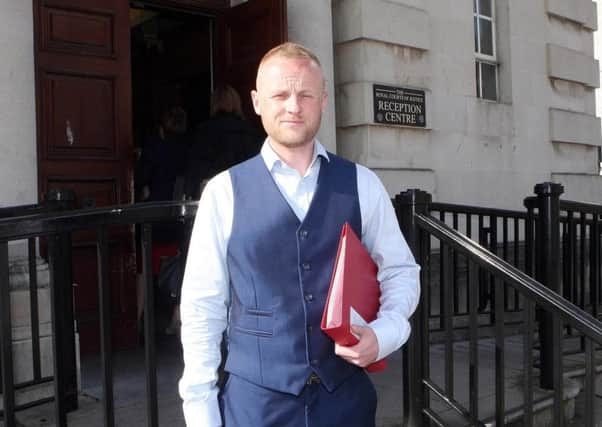Jamie Bryson search warrants obtained by PSNI using wrong legislation


Judges held that the applications should have been made under a different section of legislation which offers greater protection to journalistic material.
Although no order was made to quash the warrants, Mr Bryson claimed the verdict sets “a massive precedent”.
Advertisement
Hide AdAdvertisement
Hide AdHe said: “A lot of people have disputed my status as a journalist but it’s been reaffirmed by the High Court.
“This is a good day for all journalists across Northern Ireland.”
Mr Bryson was challenging the legality of warrants obtained from a lay magistrate to search two residential properties and business premises in Co Down last August.
PSNI officers obtained authorisation and executed the raids on behalf of the Security Industry Authority for the regulatory body’s inquiries into any suspected illegal supply of staff.
Documents, laptops and an iPad were reportedly seized.
Advertisement
Hide AdAdvertisement
Hide AdMr Bryson claimed police had no power to take journalistic and other legally privileged material during the operation.
A County Court judge, rather than a lay magistrate, must give the go-ahead to seize such documents under the relevant section of the Police and Criminal Evidence (PACE) Order, he contended.
His lawyers argued that the decision to seek the warrants under Article 10 of PACE was unlawful because the PSNI knew he is a journalist and in possession of “excluded material” under Article 11 of the same legislation.
During the hearing it emerged that criminal proceedings have been commenced against Mr Bryson.
Advertisement
Hide AdAdvertisement
Hide AdThe SIA is prosecuting the 29-year-old for allegedly stating a company in which he is a director has never traded. He denies any wrongdoing.
Counsel for the PSNI and SIA resisted Mr Bryson’s legal challenge, insisting investigators knew nothing about his journalistic credentials.
It was stressed that the probe was only focused on any alleged unlicensed supply of door staff.
Ruling on the case, Mr Justice McCloskey rejected other grounds, including submissions that police were not legally empowered to seek the warrants on behalf of the SIA.
Advertisement
Hide AdAdvertisement
Hide AdHe accepted that Mr Bryson’s claim to be a journalist did not feature in the applications to the magistrate, and that authorities seeking the warrants had no interest in obtaining journalistic material from him.
The judge described affidavit evidence on the issue of his asserted occupation as “strikingly meagre”.
However, he said: “On balance, the applicant has established that the Police Service knew or ought to have known that the materials they were pursuing would, as a realistic possibility, contain journalistic material.”
That ground of challenge must succeed, the court held.
Mr Justice McCloskey confirmed: “The impugned warrants should, as a matter of law, have been sought and procured under Article 11 (of) PACE, rather than Article 10.”
Despite indicating the court is not minded to quash the warrants, a final order will be drawn up later this month.